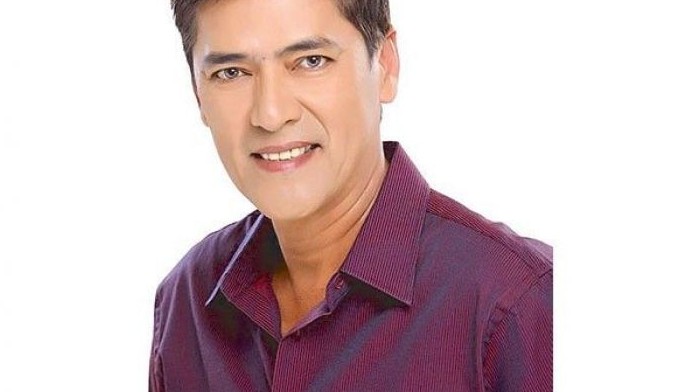A life worth living and fighting for
December 1, 2005 | 12:00am
 Angels in America?!
Angels in America?!
All right, there are no angels in America – and perhaps elsewhere in the world.
However, there are only human beings – angels without wings – who are thrust in this life and bound to struggle in search of hope, faith and meaning in their existence.
Metaphorically speaking, they are the kind of angels portrayed in the play of Pulitzer-winner Tony Kushner, Angels in America, now a movie which premieres tonight and tomorrow at 10 on HBO.
Be it performed on stage or presented on screen, Angels in America has successfully depicted a lifeon the verge of falling apart – a life full of human fears and foibles. As many would like to believe, the film is also consistent with its theme: that life is worth living and fighting for. The contextual message is as creepy and disturbing as HIV/AIDS, the core issue tackled and discussed in this HBO original.
Amidst the conservative thinking of the ’80s, and the then newly-discovered life-threatening HIV/AIDS comes the compelling story of Angels in America. The plot revolves around the high-profile life of topnotch lawyer Roy Cohn, played by Al Pacino, and out-and-out gay Prior Walter, played by Justin Kirk, both HIV-AIDS carriers.
Roy, who knows everybody in the upper crust of the society, has a clout that could turn the "truth" the way he wants to perceive it. Through his dirty, ruthless machinations, Roy is able to bend the law and put a nuclear spy (Ethel Rosenberg) in the story, not behind bars, but in the electrical chair. This is also true when Roy finds out that he is positive with HIV/AIDS. He threatens his physician if the latter doesn’t change the findings to liver cancer.
Roy is a picture of a strong-willed man and an old, dirty player. He is a veteran of a fast-lane, dog-eating-dog life fashioned with self-serving intentions. With his know-it-all looks, Roy denies the meek, er weak lamb inside him.
Prior Walter, on the other hand, is a straight gay man who finds solace and happiness under the care of his gay lover, Louis Ironson (Ben Shenkman), who tries to maintain his relationship with Prior even if he could be infected with AIDS. With the realities screaming right in front of his face, Louis takes the other route in their relationship. He virtually leaves Prior alone in the oftentimes one-way road love affair of the third kind. This brings so much pain and suffering to Prior.
As Roy, Louis and Prior fear for their lives. Young lawyer Joe Pitt (Patrick Wilson) and his wife Harper (Mary Louise Parker) are thrown into some marital problem. The drug-dependent, depressed Harper feels Joe is lying to her. She feels Joe is a too-good-to-be-true kind of husband. There’s something awful behind his perfect façade. As Harper follows and pursues her instinct, she finds the truth. Joe is a homo. With this development, Joe, a Mormon, has finally found himself, but still tries to win his wife perhaps in the name of his dignity, religion, family and determined mother, Hannah Pitt, played by Meryl Streep.
These rotten images on screen bear personal closure and freedom among the characters. It makes their lives as real as one can get. No more romancing with what is ideal and self-preferred images of good life.
Angels in America puts its viewers in an uncompromising, challenging situation. Just like any method actor, it gives you the "magic if" question that makes you think twice in every decision you make and the quality of life and relationship you have at the moment.
It reminds you of what an illicit or love relationship can bring you. It gives a closer view of homosexuality and the repercussions of HIV/AIDS.
Angels in America shows us the importance of self-respect, honesty in any relationship and being true to one’s self.
Every character is a reflection of a part of us. The HBO original movie gives us this multi-faceted view of what makes us human. Angels in America tells us that we are a body of emotions, and that we can be weak, strong, confrontational, deceitful and triumphant.
Although the story tries to represent its subjects as they really are, religious images like the Bible in Hebrew, a mysterious heavenly voice, an angel, and ghosts in whimsical costumes give the story-telling a surreal twist.
Also adding an offbeat look to the drama are the subconscious-inspired and dreamlike scenes of Harper and Prior finding an escape from their personal issues and crises. Just like kids with imaginary friends, Harper and Prior have created their own, sometimes shared imaginary worlds. This reminds viewers how powerful the human mind could be.
This cinematic approach intensifies the drama instead of slowing down the sincerity and the validity of the presentation.
Aside from its relevance, the movie boasts of the fine performances of Al Pacino, Emma Thompson and Meryl Streep. Most of the actors also play dual roles.
If there’s one image of reality Angels in America wishes to leave its audiences, it’s the fact that life is worth living.
BrandSpace Articles
<
>
- Latest
- Trending
Trending
Latest
Trending
Latest
Recommended
































